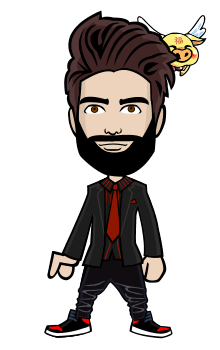
How often have you said, “I just want to be happy”?
How often have you said to someone else, “I just want you to be happy”?
Have you ever stopped to consider exactly what happiness means? What, exactly, is this happiness you are wishing for?
It matters because it’s hard for your wishes for happiness to come true if you aren’t clear about exactly what happiness is.
What is Happiness? A Definition of Happiness
Possibly the best place to start defining happiness is by defining what it is not.
Many people believe that happiness is having fun at a party, the excitement of new experiences, the thrill and passion of sex, or the delights of a fine meal. These are all wonderful experiences to be cherished and cultivated but they are not happiness.
These experiences are the definition of pleasure. They are experiences to have and let pass. A meal to savor, then digest. A party to enjoy then let wind down. The passion to enjoy and the warm afterglow to linger in.
Pleasure is fleeting and must be if it is to continue to please us because if we have these joyful experiences all the time, our brains adapt and turn pleasure into routine. Once that happens, it takes even more to make us feel good again. Chasing pleasure is not happiness.
So, if happiness is not the same thing as pleasure, then what is happiness?
Happiness is…a warm puppy. Just kidding, warm puppies are pretty nice but I’m putting the puppy squarely in with pleasure. After all, would it still be fun to hold a warm puppy for a month? I don’t think so. So, what is happiness?
Happiness is when your life fulfills your needs.
In other words, happiness comes when you feel satisfied and fulfilled. Happiness is a feeling of contentment, that life is just as it should be. Perfect happiness, enlightenment, comes when you have all of your needs satisfied.
While the perfect happiness of enlightenment may be hard to achieve, and even harder to maintain, happiness is not an either /or case. There are nearly limitless degrees of happiness between the bliss of enlightenment and the despair of depression. Most of us fall somewhere between, closer to the middle than the edges.
What Are Your Essential Needs to be Happy?
Since happiness is when your life fulfills your needs, the next logical question is, “What are my needs?”
Over the millennia many have offered answers to this question and nearly all came back with too simple answers to what is, at its core, a complex problem.
Let me ask you a question. Would you say that you, like all humans, are complicated to understand? Of course you are. We all are. If we weren’t life might be much simpler but also much less rich. That complexity means that there are no simple, one-size-fits-all answers to what makes us happy.
Our individual needs vary based on our genetics, how we were raised, and our life experiences. That complex combination is what makes each of us unique, both in our exact needs, and in every other aspect of what makes us the person we are.
We may each be complex but we are all human and that provides the foundation on which we can discover our essential human needs. Just as we are all born looking human on the outside, we all share common basic needs on the inside. Where we differ is exactly how strongly we feel each of those needs.

I like to think of each of us like one of those big recording studio mixer boards, the ones with all the sliding controls and knobs, some of which interact with each other, some working separately, all working together to produce the final product. We’re like that. Each knob and slide may be set a particular way, the way that produces the person we are. Each of us is like the same model of mixer board, let’s call it Homo Sapiens 1. We each have the same knobs and sliders but we each have them set a bit differently.
Our current theory, largely based on new scientific discoveries about how the brain works and on current happiness theories, has identified 9 universal and overlapping human needs which go by the handy acronym WE PROMISE.
WE PROMISE stands for:
- Wellbeing – mind-body connections, aspects of your physical body that affect your mood, and vice versa
- Environment – external factors like safety, food availability, freedom, weather, beauty, and your home
- Pleasure – temporary experiences such as joy, sex, love, and eating
- Relationships – as a social species, relationships are at the foundation of what it means to be human
- Outlook – how you approach the world through adventurousness, curiosity, and making plans
- Meaning – having a purpose and the wisdom to understand it
- Involvement – to be happy you have to be engaged and actively involved
- Success – confirmation from yourself and others that what you do has value
- Elasticity – how you recover from life’s inevitable negative events
These 9 categories cover the range of human needs in a very general way and are intentionally overlapping, just as our thoughts and feelings overlap in our mind.
For example, the thrill of a roller-coaster ride is a mix of: fear (Elasticity), joy (Pleasure), adventure (Outlook), shared experience (Relationships), safety (Environment), upset tummies (Wellbeing), the courage to ride (Involvement), and the reward of having done it (Success). All these are experienced in one event, many at the same moment in time.
While the WE PROMISE categories are a convenient way to organize and simplify our universal needs, they are just the beginning – we are each more complex than that.
Within each category are 5 to 10 specific items which we call Happiness Essentials™, for a total (as of this writing) of 58 “knobs and sliders.”
Going Deeper – How to Build a Happy Life
To go in-depth about WE PROMISE and your Happiness Essentials, I have created a special 14-part series, “The Keys to Happiness: Your Ultimate Guide to Building a Lifetime of Fulfillment and Satisfaction” which not only explains much more about the WE PROMISE categories and all of your Happiness Essentials, but shows you how to build a Happiness Plan, and even compute your Happiness Index to give you a measurement of your happiness which you can track over time.



